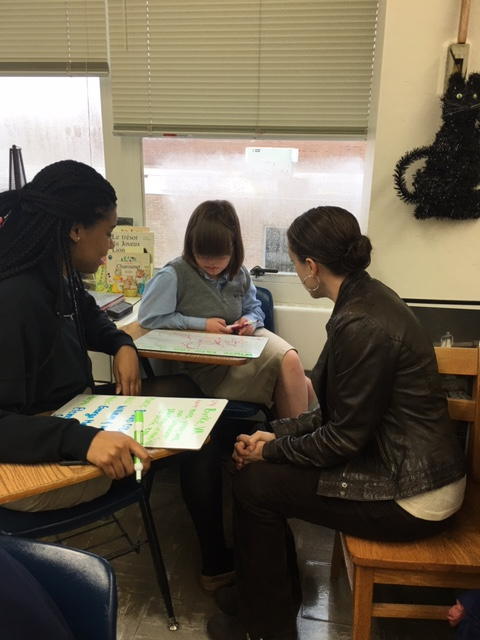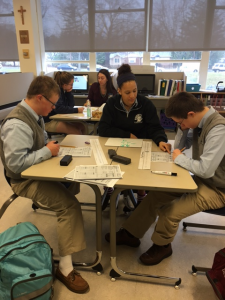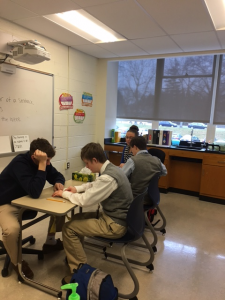The following article was contributed by Susan Rinaldi, Director of Expanded Services at Bishop O’Connell High School in Arlington, Virginia.

18 months ago, Bishop O’Connell High School in Arlington, Va. began offering inclusive educational services to students with intellectual or cognitive disabilities. Beginning in 2015 with two freshmen and adding four freshmen in 2016, the school currently provides inclusive services for six students. Future plans include adding more students to the incoming freshman class every year. As the director of expanded services, these 18 months have been a rewarding, busy, and wonderful adventure. Inclusive services are a full-school effort and therefore bring forth full-school rewards. As we continue to build and strengthen our services, there are many lessons we are learning.
1. Embrace the Mindset: “Inclusion is a mindset. It is a way of thinking. It is not a program that we run, or a classroom in our school, or a favor we do for someone.” (Lisa Friedman, Removing the Stumbling Block) Our schools do not need more programs that will create boundaries to define the educational opportunities for students with disabilities, rather, we need services that will open up opportunities, raise our expectations and broaden our view of possibilities for individuals with disabilities. At O’Connell we seek to embrace the learning needs of the individual. This is accomplished by providing meaningful modified instruction in both small group settings with special education teachers as the instructors, as well a range of classes from the course catalogue in areas of science, social studies, fine arts, foreign language, theology and PE. When Inclusion is our mindset, there is no activity or class in which we would not expect to see a student with a disability learning alongside their peers.
2. Collaboration is Key: We seek to work cooperatively and collaboratively with teachers in placing students in classes. It is important to communicate regularly to support and brainstorm ideas for meaningful modified instruction within the framework of classroom teachers’ lesson plans. Creative instructional strategies and out of the box thinking strengthens us as educators.
3. Partner Closely with Parents: As Catholic educators we recognize and value parents and guardians as the primary educators of their children. Inclusive education is a team effort. Parents are invaluable experts on their children. It is important to work with parents to develop effective modes of school-home communication, as well as draw from their expertise on their children.
4. Peer Mentors make it all possible! The effectiveness of our services relies not only on a large group of teachers and administration, supportive parents, and special educators, but also on the commitment of a large group of peer mentors who support our efforts. In order to provide peer mentor support for all classes, we offer a Peer Mentor class in which those enrolled are matched with a mentee and a class to attend. Peer Mentors participate in a thorough training session prior to school starting, and their work is monitored and supported as the year progresses. These mentors are student leaders modeling respect and mutual friendship that is authentic and attractive. What begins as a functional “mentoring” relationship grows into a natural friendship. The relationships formed by mentors and mentees are a vibrant witness within the school. Many mentors will offer that their mentoring experience is life changing and the best part of their school year.
5. The WORK is WORTH IT. Inclusion is messy. It involves a lot of people. It is not easy, but is more than 100% worth it. It is a visible witness to our Catholic identity. It is relational, rewarding, and full of wonderful surprises. Its positive effects are immeasurable and as uncontained as our inclusive educational approach.
To learn more about working with Exceptional Learners, join us for the NCEA 2017 New Directions Exceptional Learner Conference in Evanston, IL June 19-21, 2017! Registration opens mid-March!

